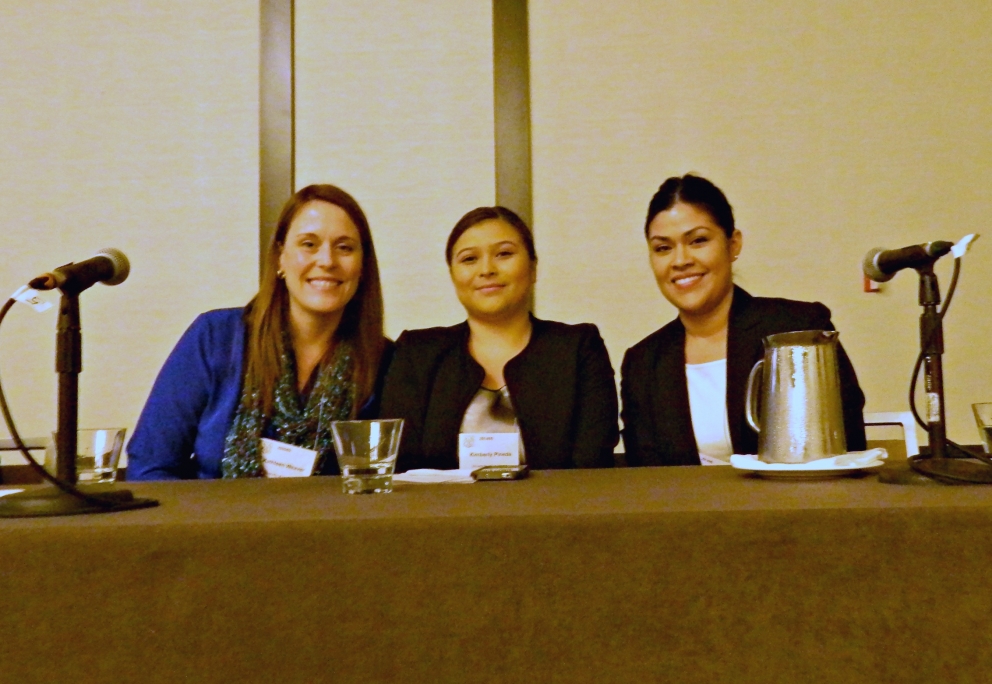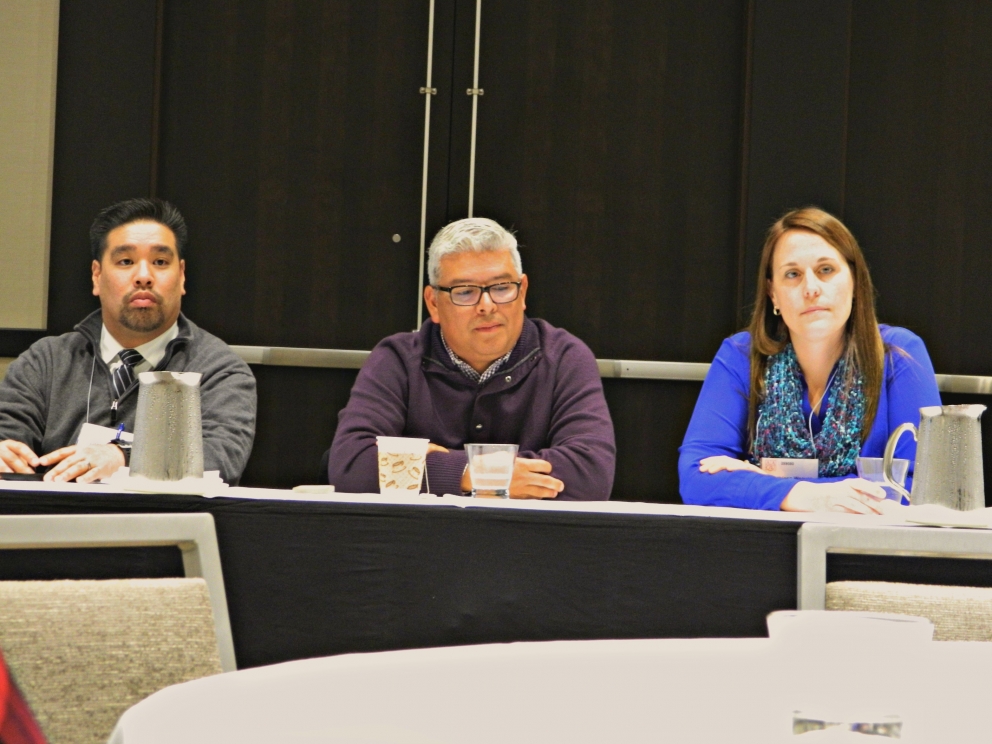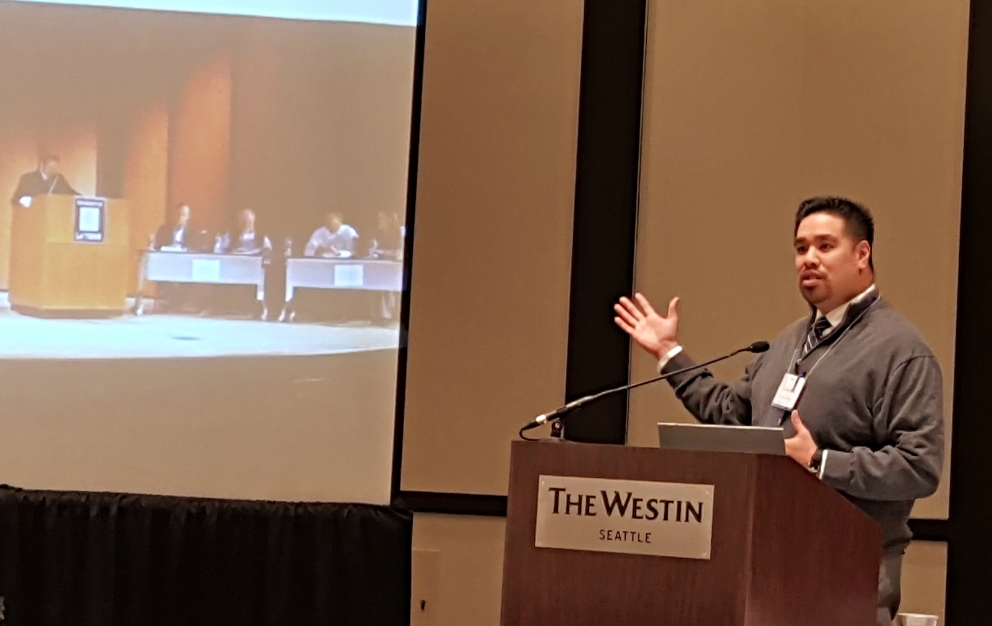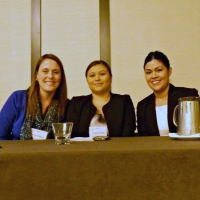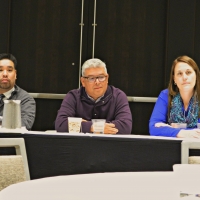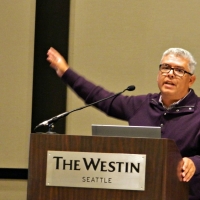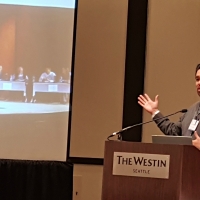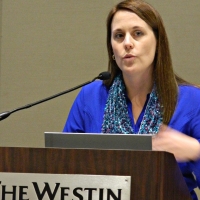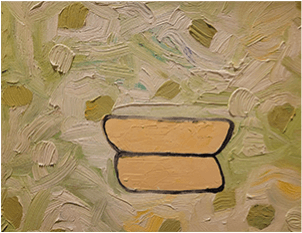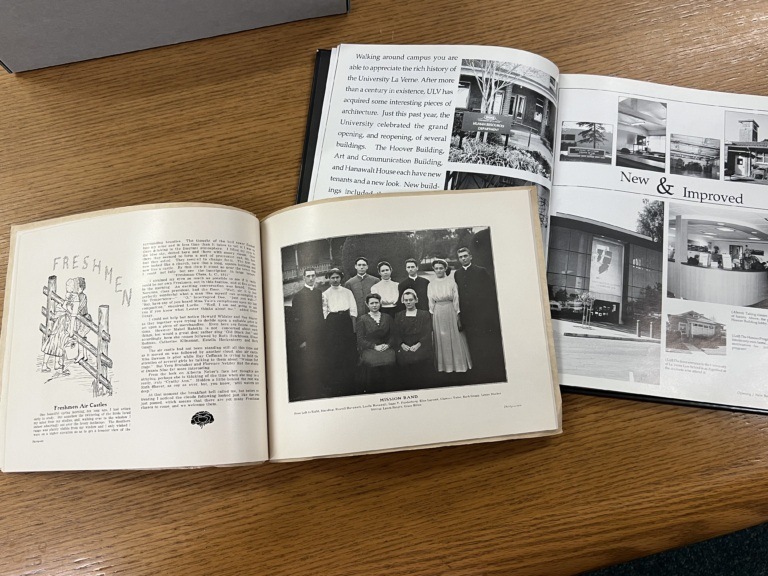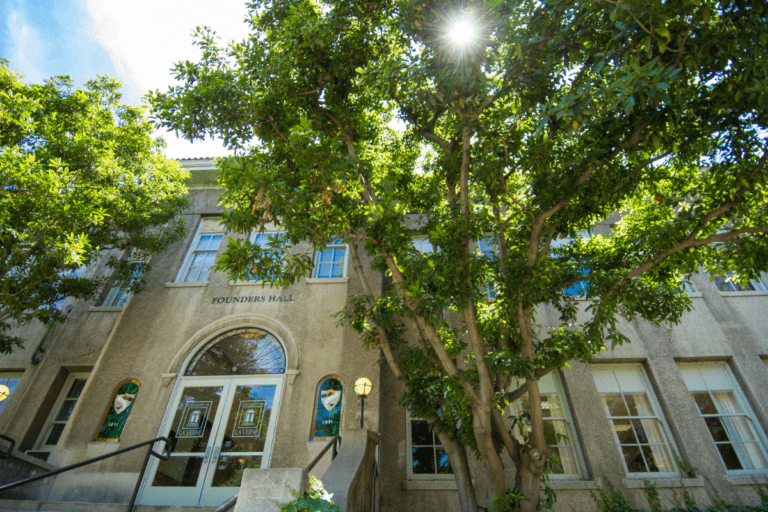La Verne Presents Innovative STEM Teaching Approaches at National Conference
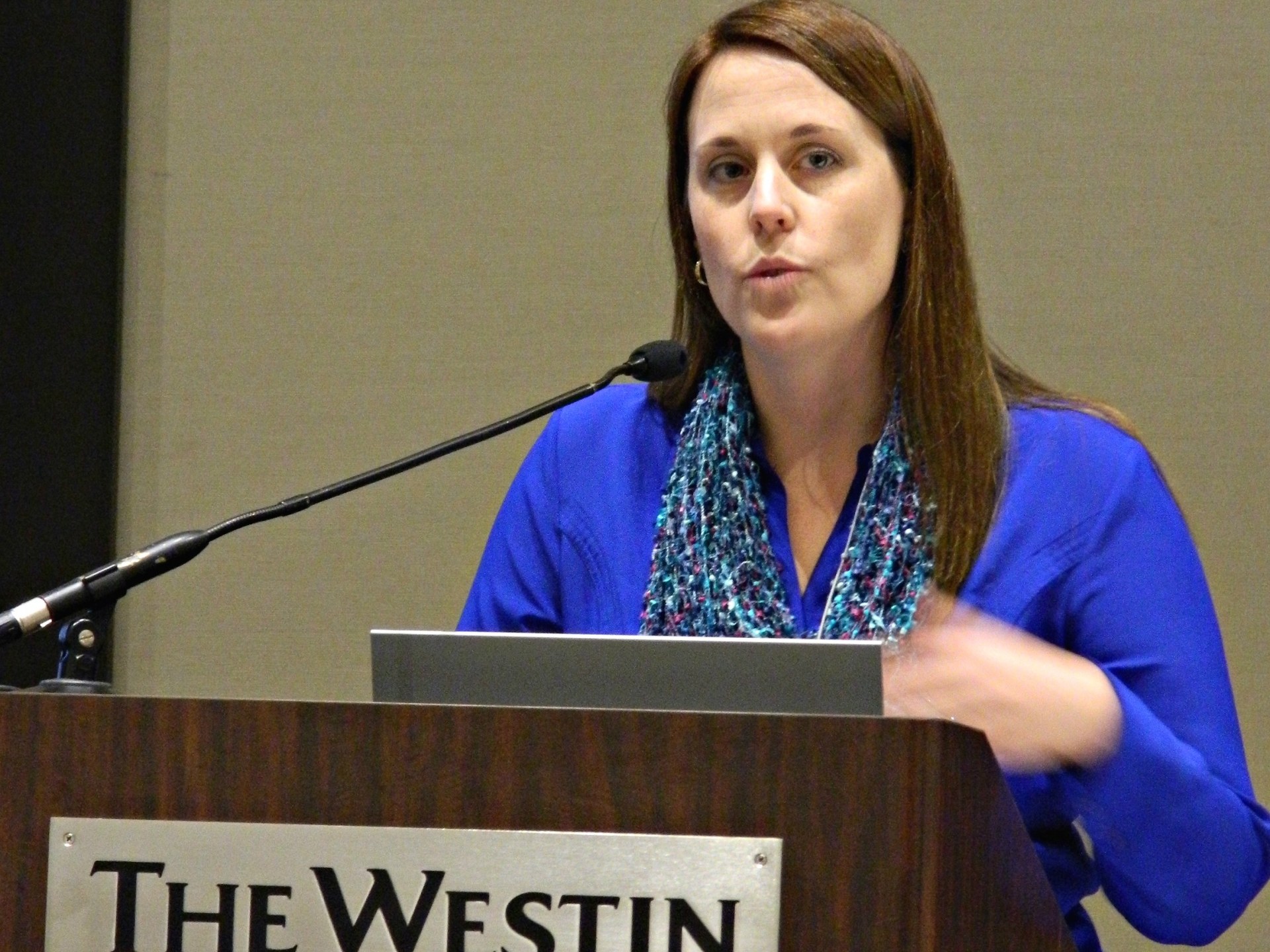
Africa’s Southern white rhinoceros caught Kimberly Pineda’s attention during her quest for a research topic that she would commit to studying throughout a semester. Beyond learning about the rhino’s plight to survive in the wild and methods to boost reproduction, Pineda said she also gained knowledge that will help her far beyond college.
“What this research project gave me are skills that I will utilize through my academic career as well as in any of the careers available to me,” the University of La Verne sophomore said.
Pineda and others shared similar stories about the benefits of “signature work” – long-term research projects that deepen student engagement – at the Association of American Colleges and Universities’ Liberal Education and America’s Promise (LEAP) Challenge Luncheon on Nov. 13 in Seattle.
La Verne faculty members were initially scheduled to give one presentation on incorporating debate into Science, Technology, Engineering and Mathematics (STEM) courses for the event, but the AAC&U invited Dr. Kat Weaver and La Verne students to share a second presentation about La Verne’s signature programs in the natural sciences after reading about them in AAC&U ‘s scholarly journal Peer Review.
“They thought other faculty would find our signature assignments interesting and appealing,” said Weaver, Director of the La Verne Experience and Associate Professor of Biology.
The AAC&U launched the LEAP Challenge in January to encourage colleges and universities to make signature work a standard of quality learning in higher education. It is a departure from the belief that simple course completion equates with college success. Through signature work, students pursue a project throughout at least one semester using their skills and knowledge to solve a problem he or she selects.
“It helps students learn to tackle the world’s next complex, interdisciplinary problems and gives them the skills sets they need to be successful in graduate school and their careers,” Weaver said.
University of La Verne alumna Vanessa Morales, who works as a post-baccalaureate researcher for La Verne, and Kimberly Pineda presented their projects at the conference to illustrate La Verne’s signature work.
Weaver also discussed La Verne’s approaches to science writing and how it evolves in core courses from freshman to senior years. Students learn to write journal article summaries, grants, literature reviews, and a senior thesis.
Weaver, Chair and Professor of Biology Dr. Jerome Garcia, and Director of Forensics Rob Ruiz gave the second presentation called “STEAM: Putting the Arts and Advocacy into STEM; Improving Written Communication in the Freshman Year.”
La Verne’s Speech Communication Department developed science courses that teach students how to talk about science to a broader audience, learn about current problems and controversies related to science and how to think critically. The use of parliamentary-style debate in La Verne’s science courses is being hailed as a success because faculty have noticed boosts in retention levels among students who have taken the courses.
But why is this happening?
Garcia and Ruiz cite studies that show overcoming communication apprehension causes students’ grades to rise and decreases the number of students who withdraw from classes.
Weaver calls both presentations excellent examples of the La Verne Experience and says the LEAP Challenge aligns with it.
“LEAP is about looking at the impact of a broad liberal arts education on the student,” Weaver said. “A common saying is that it ‘takes more than a major.’ Our project on STEAM (putting the arts and advocacy into STEM) shows that. In addition, LEAP emphasizes high impact practices as part of increasing student success in school. A few of these we emphasize at La Verne include undergraduate research, learning communities and common intellectual experiences.”
